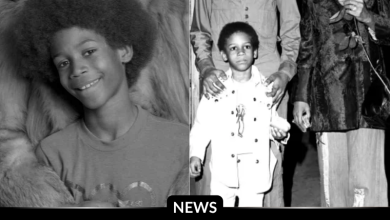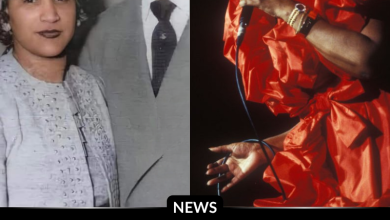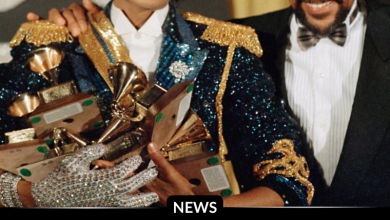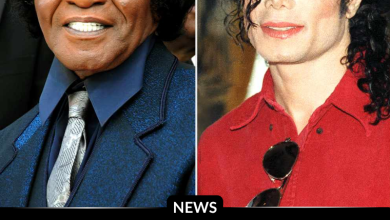“It Felt So Real” — Whitney Houston Confesses the Painful Scene in The Bodyguard That She Refused to Film More Than Three Times
OPINION: This article may contain commentary which reflects the author's opinion.
When The Bodyguard hit theaters in 1992, it didn’t just mark Whitney Houston’s acting debut — it introduced the world to one of cinema’s most unforgettable love stories. The pop icon, already at the height of her fame, starred as Rachel Marron, a glamorous singer whose success comes with a price: danger, isolation, and fear.
But behind the dazzling performances and romantic tension with co-star Kevin Costner, Houston revealed years later that one moment in the film hit too close to home — so much so that she refused to film it more than three times.
“It felt so real,” Houston once said quietly. “I wasn’t acting anymore. I was feeling it — and it hurt.”
🎬 The Scene That Shook Her
The scene in question was one of The Bodyguard’s most harrowing: a chaotic concert sequence where Rachel Marron is attacked by a stalker who’s been sending her threats.
Under the blinding stage lights, with the roar of the crowd and the sudden panic of the assault, something in Whitney shifted.
“When the crowd turned wild, when I saw the panic on people’s faces — I thought, this is what fame feels like,” she said later. “You think everyone loves you, but some days it feels like you’re being hunted.”
Director Mick Jackson noticed her growing distress and cut the scene short, while Kevin Costner — both her co-star and producer — stepped in to reassure her.
“Kevin told me, ‘You don’t need to do it again. We’ve got it,’” Houston recalled. “He knew I wasn’t acting. I was reliving something.”
🌟 When Fiction Mirrors Reality
By the early ’90s, Whitney Houston was one of the most famous women in the world — yet that fame often came with overwhelming pressure and a sense of vulnerability.
She had faced intense media scrutiny, obsessive fans, and the isolating glare of superstardom. On set, that anxiety seemed to resurface.
“When I was on stage, I felt safe,” she explained. “But when the lights went out, that’s when I felt the danger. Fame can make you feel seen and invisible at the same time.”
In many ways, Rachel Marron was a reflection of Whitney herself — a powerful performer longing for normalcy and protection.
“I didn’t have to act Rachel,” Whitney once said. “I was her. The fame, the pressure, the loneliness — it was all real.”
💞 Kevin Costner: Co-Star, Protector, Friend
Throughout production, Costner was both collaborator and confidant. He recognized Whitney’s inexperience as an actor but also her natural depth and emotional honesty.
“Kevin treated me with kindness,” she said. “He gave me space, but he also reminded me I was stronger than I thought. He didn’t see a superstar — he saw a person.”
Their chemistry — tender, guarded, and sincere — came from that mutual understanding. Costner would later say her performance was “pure,” shaped by her openness and vulnerability.
“Whitney gave more than she realized,” he said. “She didn’t just act — she surrendered.”
🎥 Three Takes — Then Silence
Production notes later confirmed that Whitney filmed the scene only three times. After the third take, she quietly set down the microphone and told the director she couldn’t continue.
“I just said, ‘I can’t do it anymore,’” she recalled. “It wasn’t fear of acting — it was that it stopped being acting.”
Those raw takes became the ones used in the final cut. The emotion audiences saw on screen — the terror, the trembling, the tears — were not scripted. They were real.
🌍 The Scene That Made History
Ironically, the same film that left Whitney emotionally drained would become one of her greatest triumphs. The Bodyguard grossed more than $400 million worldwide and produced the best-selling movie soundtrack in history, led by Houston’s iconic rendition of “I Will Always Love You.”
But for Whitney, the film’s power came from its honesty.
“People saw the glamour,” she said. “But they didn’t see what it cost. That scene — that was me saying, ‘This is what it really feels like.’”
💫 Strength Through Vulnerability
Years later, reflecting on the experience, Whitney said that The Bodyguard helped her confront her deepest fears — about fame, about vulnerability, and about being truly seen.
“I learned that you can be afraid and still be strong,” she said. “You can break down and still shine.”
That balance — of grace and pain, strength and fragility — became the essence of Whitney Houston’s legacy.
“Rachel taught me that love and fear can live in the same place,” she once said. “And that’s where I sang from — that place.”
Though she left this world far too soon, Whitney Houston’s words still echo with the same raw honesty she brought to The Bodyguard: a reminder that even the brightest stars carry shadows — and that true courage sometimes means letting the world see them.



